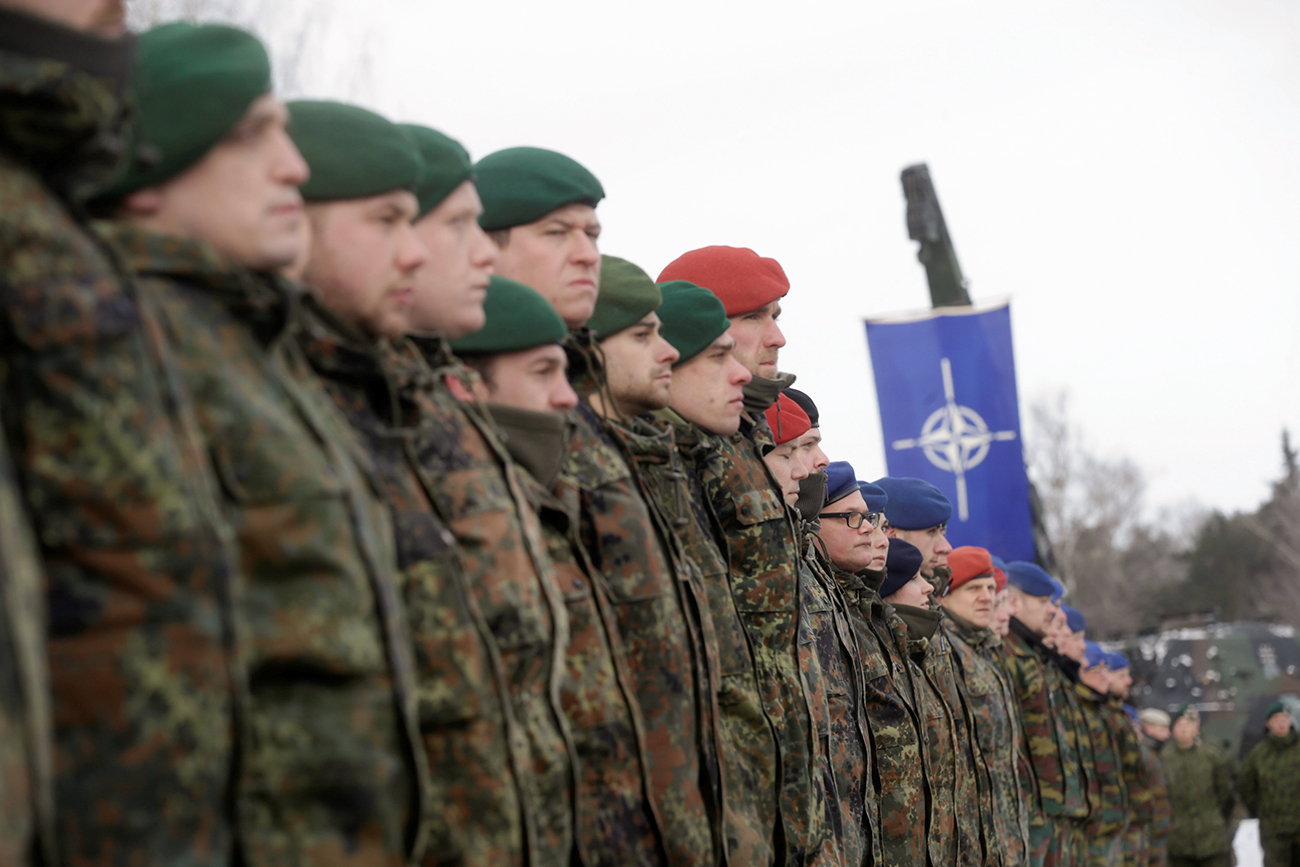
Experts believe that the permanent stationing of 4,000 NATO troops in the Baltic states close to the Russian border is not unusual and do not formally breach the Alliance's 1997 deal with Russia.
ReutersDefense ministers from the Baltic States signed an agreement Feb. 15 permitting NATO troops to cross their territories - meaning they could reach the Russian border in less than a day. On Feb. 16 the new U.S. Defense Secretary, James Mattis, stated that America should build its relations with Russia from a position of strength.
In Moscow, Defense Minister Sergey Shoygu, expressed his doubts about the wisdom of such an approach, noting that additional explanations from Washington would be welcome.
RBTH looks at the potential risks these moves pose for Russia.
Experts believe that the permanent stationing of 4,000 NATO troops in the Baltic states close to the Russian border, which has alredy been announced - and the latest agreement on unhindered movement of NATO forces towards Russian territory - are not unusual and do not formally breach the Alliance's 1997 deal with Russia, when the two parties agreed that NATO would not deploy significant military contingents near Russian territory.
Vladimir Yevseyev, a military expert and deputy director of the CIS Studies Institute, believes the document signed by the defense ministers of the Baltic States is purely technical and will not result in any radical changes along the Russian border. For this reason, he notes, Russia should not take any aggressive steps that could worsen relations with NATO.
Izvestia's defense analyst, Dmitry Safonov, told RBTH: “Russia will react to any actual changes close to its borders, such as the deployment of new offensive weapon systems and military units.”
He added: “For the time being, the Russian Defense Ministry will continue as normal under the plan to develop the armed forces through 2025 that was approved by the president. This plan will not be amended in any way.”
Safonov notes that Russia is already deploying new units in its Western Military District under this plan and is also engaged in a massive effort to re-equip the army with advanced weapon systems.
As for countermeasures already being put into place, Shoygu announced in January 2016 that three new divisions are to be raised in Russia - adding up to 39,000 troops to its military strength.
Experts agree that Russia should refrain from overreacting and further aggravate already complicated relations with NATO. “We should keep on working quietly to modernize our army and economy, while simultaneously seeking new common points for better mutual understanding,” said Valery Garbuzov, director of Moscow's Institute for U.S. and Canadian Studies.
Fyodor Lukyanov, editor-in-chief of Russia in Global Affairs magazine, told RBTH: “Mattis represents a generation of no-nonsense military officers who are aware that symbolic gestures like deploying four battalions to the Baltic States [and Poland] will be of little use in case of a serious conflict with Russia." He added that Washington's policy towards Russia could mean that the U.S. may upgrade its nuclear potential and re-equip its armed forces.
“The U.S. is entering a period of a classic Republican model of governance, which implies the demonstration of a readiness to resort to the use of force. In this sense, Mattis will make an excellent aide to [U.S. President Donald] Trump.”
So far, however, the U.S. has not taken any unequivocally concrete steps, so it is still too early to predict the Kremlin's reaction.
If using any of Russia Beyond's content, partly or in full, always provide an active hyperlink to the original material.
Subscribe
to our newsletter!
Get the week's best stories straight to your inbox